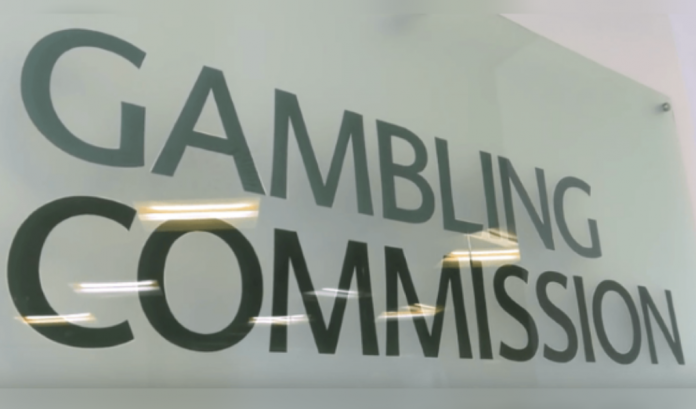The UK Gambling Commission (UKGC) has made progress in recent years, but is facing ‘risks that are dynamic,’ according to Tim Miller, the authority’s Executive Director of Research and Statistics.
Covering a three year period, the UKGC’s ‘National Strategic Assessment’ aims to outline how the authority responds to risks and duties, but is also heavily influenced by changes in gambling policies, protections, treatment and research.
Miller argued that the latest assessment was based on ‘best available evidence’ and recognised the significance of the COVID-19 pandemic on 2020 events.
The digital transformation of the British betting sector in particular has altered the risk profile of customers, with a noticeable move “towards more intense products, such as slots and in-play betting.
This shift is best demonstrated by the fact that the number of UK consumers using the services of online gambling operators generated more than 50% of Gross Gambling Yield, excluding prizes, prior to the implementation of COVID-19 restrictions.
This has obvious implications for where and how customers gamble, as does the increasing use of mobile phones to play,” Miller remarked.
In response to the shifting online risks, the UKGC enhanced its compliance enforcement operations and has issued over £90 million in sanctions since 2017/18 in addition to revoking 10 operator licenses.
Additionally, GAMSTOP has been commissioned as the compulsory multi-operator exclusion scheme’ for the online market, whilst stricter operator requirements regarding player verification and identification have been introduced, as well as prohibition of credit cards as a gambling payment method.
All round improvements had seen the UK’s rate of problem gambling in 2020 reach a four year low of 0.3 per cent compared to 0.6 per cent in 2019, 0.5 per cent in 2018, 0.6 per cent in 2017 and 0.7per cent in 2016.
“Over the last five years it does appear that there is an emerging trend showing a decline in overall rates of problem gambling,” the executive added.
However, despite the progress, Miller also admitted that there were still many risks and challenges posed to both the UKGC and the gambling industry in general.
Additional risks have appeared following several mergers and acquisitions, which have carried over safety implications as “compliance work has seen that time taken to integrate different systems and approaches can disadvantage customers in terms of safer gambling and customer experience.”
The UKGC’s strategy for 2020 had to be changed considerably to account for the enforcement of COVID-19 restrictions, resulting in online gambling operators being required to review affordability checks, customer care interventions and deposit thresholds.
Despite meeting its compliance objectives, Miller explained that the UKGC needed to be better able to support its four key research elements related to UK gambling.
The UKGC has therefore launched directives which focus on developing a ‘single customer view’ of UK gambling, providing stakeholders with a ‘full picture’ of customers interactions with risks and harms.
“A Single Customer View could dramatically help reduce harm and that is why we will not accept progress at the pace of the slowest on this work,” Miller remarked.
The executive also addressed the increased political scrutiny felt by both the Commission and the gambling industry as a whole throughout 2020.
“Now I said I would return to the increased political interest and scrutiny that gambling and our work has received in recent years,” he began.
“As a statutory regulator, it is right that we are scrutinised and held to account for how we deliver the licensing objectives and we know that different groups may have very different views about how our role should be performed.
“In particular, we welcome greater interest from Parliament in making gambling safer. Whether that interest is long held, came from concerns over FOBTs or is yet more recent, we welcome the diversity of interest and perspective that this greater scrutiny brings.”
Moving forward into 2021, Miller outlined the UKGC’s objectives for further enhancing Britain’s safer gambling standards.
One of the main conclusions of the assessment, Miller pointed out, was the need to hear the voices and opinions of those with lived experience of problem gambling.
“We were amongst the first voices to make the arguments that Gambling Harms should be recognised as a Public Health issue and adopted a public health approach when we published the first ever National Strategy to Reduce Gambling Harms in 2019,” Miller stated.
He added: “Amongst the debate around gambling, it often gets forgotten that a lot of progress has been made over the last three years.”
The assessment acknowledged that problem gambling is now recognised as a public health issue and so ‘needs a public health approach,’ adding that this ‘wasn’t universlaly accepted three years ago.’
Other potential measures include prohibition of features that speed up play or give the illusion control over an outcome, slot spin speeds faster than 2.5 seconds, auto-play modes and sounds or imagery which give the illusion of a win when returns are equal to or lower than the stake.
The Commission’s Business Plan and Corporate Strategy for the year will be published in the Spring, where the authority’s focus on making gambling ‘safer, fairer and crime free’ will be further clarified.
“We are working hard to make Great Britain the safest place to gamble in the world and we need you all to work with us to achieve that outcome,” Miller concluded.
“We recognise the unprecedented pressures on businesses and we know that some operators have been forced to make tough decisions to keep businesses and jobs viable in recent months.
“But even through the turbulence of the pandemic, progress is being made in making gambling safer. The evidence is suggesting that we are on the right track. So let’s keep on going together.”




















